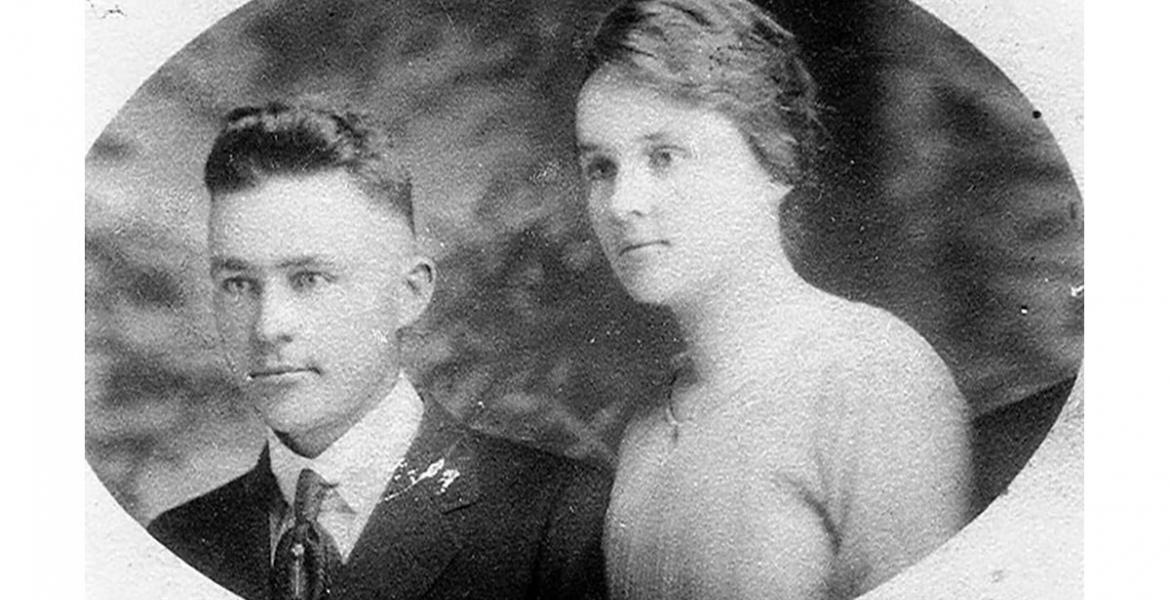Opinion. Within the past couple of years, there’s been an interesting revival of feminism bashing. Either this bashing seems to be more predominant with the continual bantering and growing divide between Democrats and Republicans, or blogs and social media, as with other controversial topics, have simply illuminated this longstanding debate and irritation with the term “feminist.”
Just by stating the word, “feminist,” I can hear the groans and visualize the rolling of the eyes. That reaction is understandable because many people do feel the topic of feminism is yet another politically-motivated label society can do without. However, disregarding feminism would mean disregarding the issues women continue to face today as well as an important part of women’s history and identity—an identity that sadly many men and women have come to view as something degrading and ridiculous because of the actions of extreme feminism.
This history and identity is the reason women today are a primary focus for the upcoming 2016 presidential election. We have more women running for the highest office in the U.S., and women have the highest voting turnout rate than males today, so that alone makes the topic of feminism an important one.
The feminists of the past are responsible for what we’re seeing today, and we cannot simply brush their fight or their challenges under the rug. Nor should we allow extreme feminism to ruin the beauty of an idea that evolved during a time when women truly had no rights beyond their own kitchens, if even then.
Therefore, we must have this discussion, evaluate our misconstrued perception of feminism and redefine what it means to be a feminist today.
The Feminist Definition
To understand what feminism really is, it’s important to understand what feminism isn't. People are somehow under the idea that feminists hate all things girly, burn their bras, rip out their uteruses, and believe they are more powerful than men.
Unfortunately, this is the view of feminism today, but people have to understand this is not feminism, but rather, extremism, which every movement is plagued with.
Being a feminist doesn't mean women reject femininity, nor does it mean we hate men. Being a feminist means accepting that women and men both have strengths, weaknesses and unique traits they can bring to the political, social and economic spectrum of society.
We don’t simply believe that behind every great man is a great woman. We also believe that behind every great woman is a great man. It’s about team work and coming together in an equal capacity to help things function.
A true feminist is someone who is comfortable with who she is, whether that’s someone who loves shopping, reading, cooking for her family, nurturing her kids, and/or working as a CEO in a major corporation and letting her husband cook and clean for her.
In fact, the women who began the feminist movement were wives who did all the above, but they wanted a voice outside of their home. However, after that first stage of feminism, things began to change, as well as perceptions.
The Waves of Feminism
During the first wave of feminism, which began in the late 19th century, both men and women rallied for the equal rights of women, but white middle class women started the movement based on suffrage. This was a time when women rallied for the abolition of slavery and woman's right to take part in the political process. Many of these middle class women were like me: mothers, wives, nurturers and women who loved their families.
However, they wanted the same democratic rights as men. Again, they weren't man haters. They wanted men to view them as intellectual equals and to escape Victorian male oppression, which allowed for men to kill and beat their wives and get away with it if they stepped outside their roles of the "good woman."
Of course, there were negative ramifications in those days and feminists experienced backlash for their actions, but they brought about change and started an amazing movement.
During the second wave of feminism, we were in the heart of civil rights and the Vietnam War. Protests, radicalism, and a fight to deconstruct patriarchal control dominated the political and social atmosphere of those days. Feminists ranted against “the man” and burned their bras in protest. Additionally, many of the feminists writing, publishing, and engaging in gender studies academic discourse at the time were professed lesbians, including some of my favorites, Gloria Anzaldúa and Toni Cade Bambara. Their discussions combined feminism and gender discourse with the feminist movement.
This combination blurred the lines of feminism.
I love my lesbian sisters and have nothing against their way of life, but their tone was anything but nice. They had no problem creating rifts between men and women. They also helped create a rift in feminism that didn't exist before. Heterosexual feminists believed lesbianism and feminism shouldn't combine politically. One such feminist, Alice Echols, said, "The introduction of sex troubled many heterosexual feminists who had found in the women’s movement a welcome respite from sexuality."
At one point, the two groups attempted to resolve their conflict, but soon homosexual feminists deemed heterosexual feminists inferior because of their "continued association with men." Unfortunately, what started as a movement to dismantle sexual categories established by the male patriarchy to separate and dominate women failed. In addition, most people began to associate the terms "feminist" and "feminism" as a lesbian state of being. Thus, if a woman professed herself a feminist, she was nothing more than an arrogant and elitist lesbian, man-hating bra-burner.
Unfortunately, this idea of feminism still exists today, and the third wave of feminism isn't helping.
Today's generation of young women use all the negative stereotypes established by the media and the patriarchy as a way to deconstruct them and to inspire female empowerment. The group's term "girl power" is a new descriptor to eliminate the negative association with feminism. This girl power includes being in control of sexuality and body image; but in reality, these girls have created an image of being the mean girl who has no respect for anyone but herself. Sex is no longer an important sacred right of passage, but something to approach in the stereotypical way men do, as a bragging right.
These so-called feminists also believe it’s okay to use men in the way they feel men use women: for their own personal gain. This isn't okay, especially when women of the past fought so hard to stop men from doing such things. Violence against women today still exists, and this ideology doesn’t help alleviate that problem.
Additional Problems with Feminism Today
All in all, the media and women are responsible for the negative associations with feminism today. As a result, we have lost the momentum in our fight to eliminate gender gaps and stereotypes.
As much as I hate placing blame on my fellow women, it's inevitable. Here are some, but not all, reasons why women today don't help our cause:
- An inability to separate sensuality from sexuality: Women today have no problem using their bodies to get what they want. They think by doing so they are in charge of their sexuality and bodies, but really they’re simply continuing their own commodification. There’s nothing wrong with being sensual or sexual, but there still has to be self-respect involved.
- An inability to stop fighting one another: Women hate on women like never before because of what they have, don't have, the way they look, or the way they don't look. Although they have always done so, social media makes this negative interaction appear more prevalent. The women who are married with kids look down upon the women who choose their careers over those things, and vice versa. Women also fight women for the love of a man, and some even resort to falsifying pregnancies or lying about who the father is to "keep their man." Then there's this "I'm going to steal your man because you aren’t woman enough" element in popular culture that sets us back even further.
- An inability to avoid extremism: Some women, to prove their “feminism” will have a hysterectomy to avoid having children instead of using contraceptives and taking care of themselves. As a result, they mess with the one body part that controls their hormones and provides internal balance.
Additionally, many women who work hard to obtain a role of power will let that power get to their heads and they end up marginalizing both women and men. They become “The so-called Man,” the person they once fought against. Instead of using their power for good, they use it to bully and to belittle.
Then there are the women who cry "rape" and "sexual harassment" at the slightest touch or compliment by a man. There's no doubt some men overstep boundaries and there are true cases of sexual harassment; women should speak out when this occurs; however, there are women who do so for power, attention, or because they can. They don’t realize that they ruin it for the women who really face these terrible situations. When a man says, “You look nice today,” that doesn’t mean, “I’m going to rip your clothes off now.”
As long as women continue to associate these actions with feminism, we will never further our cause. Instead, we will be like all other marginalized groups. We will continue to rail and rally, but never move ahead because we’re too busy selling ourselves short, fighting amongst one another and playing the blame game because that’s all we can do.
It’s Time to Redefine Feminism
Here’s the thing, as long as violence against women, family leave policies, women in office, the birth control and abortion debate, the pay gap and the sex trade continue to be issues, feminism will continue. Feminism is advocacy for equality and women’s rights.
If women expect to be treated as equals, we have to work on ourselves. We have to quit using our bodies as a tool, and we have to respect one another regardless if we share the same ideas of what it means to be a woman. In other words, as long as women continue to live within the extremes of feminism and continue to engage in self-deprecation, we will always be marginalized within the patriarchy of America. Only this time, we’re marginalizing ourselves.
It’s time to get back to the original tenets of feminism, but focus on the here and now. To say “I’m a feminist,” means “I’m an advocate for women’s rights.” As an advocator that also means understanding that women have evolved and have come a long way. Also, it means understanding that men aren’t the enemies. There are plenty of men who also advocate for the rights of women; so instead of fighting against them, we should be working with our fellow man on an equal standpoint to figure out how to address the issues previously stated. Once those issues are resolved, we can then work on eliminating the label.
Sources:
"Lesbian Feminism." Lesbian History. University of Michigan. n.d. Web 27 Feb. 2014.
Subscribe to the LIVE! Daily
Required






Post a comment to this article here: